I recently received a question from a high school goalie regarding weight gain and lacrosse goalies that I thought was very important to share with the Lax Goalie Rat community.
Since many other large goalies might be in the same situation this young goalie finds himself in I wanted to write up the answer and share it here on the blog.
Hi Coach Damon,
I write to you again thinking very highly of your input on the goaltending position. So basically I’ve gained a good amount of weight since last spring. I was at 5’11” 195 but now sit at 6′ 225. My question to you is, is it bad to be a bigger guy in between the pipes? I still feel as explosive as I’ve ever been and my endurance hasn’t suffered by much. I lost about 45 seconds to my mile of 7:20 since the spring. Should I try to maintain this weight to fill up the net? Or do you think I could drop a few pounds? I’ve attached photos of me in goal on the left is me currently. Thank you for your input. – GG
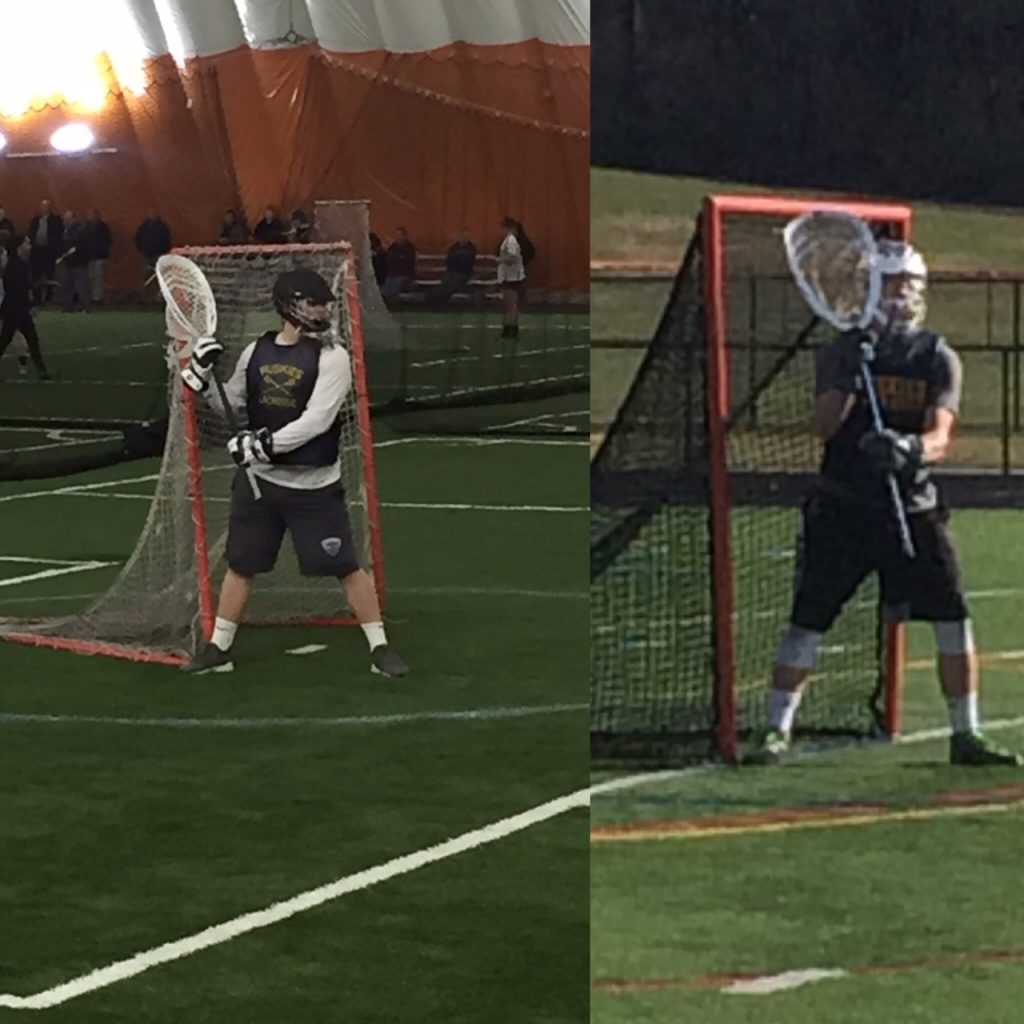
Thanks for that question GG! Since there are many lacrosse goalies who are on the heavier side I want to share this advice with everyone. Here we go.
Advice for Goalies on the Heavier Side
It’s a common cliche for the coach to put the largest kid as the goalie and it’s definitely ok to be a bigger goalie. That’s the beauty of our sport and this position – small goalies can succeed as well as large goalies.
But when we say “bigger” goalie, that “bigger” should mean stronger. Filling up the cage only does so much if that width isn’t muscular.
Some goalies are definitely overweight in junior high or high school but can get away with it because of a lot of reps and lots of natural ball stopping ability. They are so far ahead of the competition that the extra weight and associated slowness doesn’t hinder them too much.
In college its a different story. Suddenly they can’t rely on that natural ball stopping ability and the extra weight just gets in the way of being a great explosive lacrosse goalie.
The bottom line is its ok to be a bigger lacrosse goalie but you must be in shape. If you’re going to gain weight to occupy more of the cage, that weight should come in the form of muscle.
Slow Mile Time = Slowing Down
The mile time is the biggest thing that stands out to me.
I talked to a friend who plays at BU who is 6’3′ and about 240 lbs. He runs a mile in under 6 minutes.
If you’re losing 45 seconds off of a mile time of 7:20, to me that indicates you may have gotten out of shape.
Pick a lacrosse goalie workout and a solid nutrition plan and follow them both until you get that mile time back to under 7 minutes and then ideally under 6 minutes.
Fit Goalies Are Better Goalies
If you’re going to be an elite lacrosse goalie, that means being fit.
Everyone can think of the goalies at the MLL or Division I level who were overweight and were still successful like Jesse Schwartzman, Blaze Riordan, and Gunner Waldt of Byrant for example.
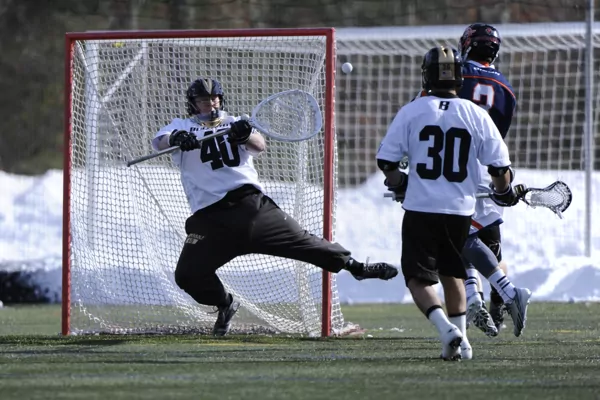
But I think these goalies are successful in spite of being out of shape.
Every heavy high school goalie may believe they’re going to be the next Blaze Riordan (shown in main post photo) but the odds of that happening are extremely small. Those guys are anomalies.
The best goalies are the best athletes: Scott Rodgers, Brett Queener, Jordan Burke, Adam Ghitelman, John Galloway…the list of fit goalies goes on and on. The list of overweight goalies who still became successful is very limited.
Nutrition is really important for any goalie. Eating healthy means more energy, which means better practices, which means better games.
GG – When I compare your two photos you definitely look more toned and muscular in the before (right) pic. Maybe the long sleeves in the after pic (left) are misleading me but you look fitter in the before (right) pic.
Time for Some Self Reflection
I think all goalies should be trying to lose fat weight and gain muscle weight.
My final advice to GG: drop the fat weight in a healthy way. It’s not going to be an overnight thing, but you’ll be glad you did it.
Start running, get that cardio up. If you’re losing that much time on a mile it’s going to be hard to make it through a high intensity game.
Then the last thing: every athlete (but especially goalies) are there own worst critic.
Look at yourself in the mirror. How’s your play since last Spring? I know you said you feel just as explosive but stats maybe a better indication of whether you see yourself getting faster and more explosive. What do your coaches say?
Even if you feel as explosive with the additional weight, you could be even faster without the weight. Just think about that.
With some serious self-reflection I think you’ll really be able to determine the answer, but there’s no doubt that extra weight to the point where it slows you down that much is certainly not helpful.
Extra weight in the form of lean muscle only helps make you more explosive and fit.
Conclusion
I’m a long standing believer that the best lacrosse goalies are the best athletes on the team.
If you’re a goalie who has gained a few pounds over the years its time to have a real conversion with yourself about whether those extra pounds are decreasing your ability to make saves.
Odds are – they are. Because while there are successful goalies who are overweight the list of fit goalies is far longer.
Just like it is for all athletes proper nutrition is a key for lacrosse goalies.
Thanks for the question GG. I hope some of this resonates with you.
Until next time! Coach Damon
Any questions or comments on this post for larger perhaps overweight lacrosse goalies? Leave me a comment down below.
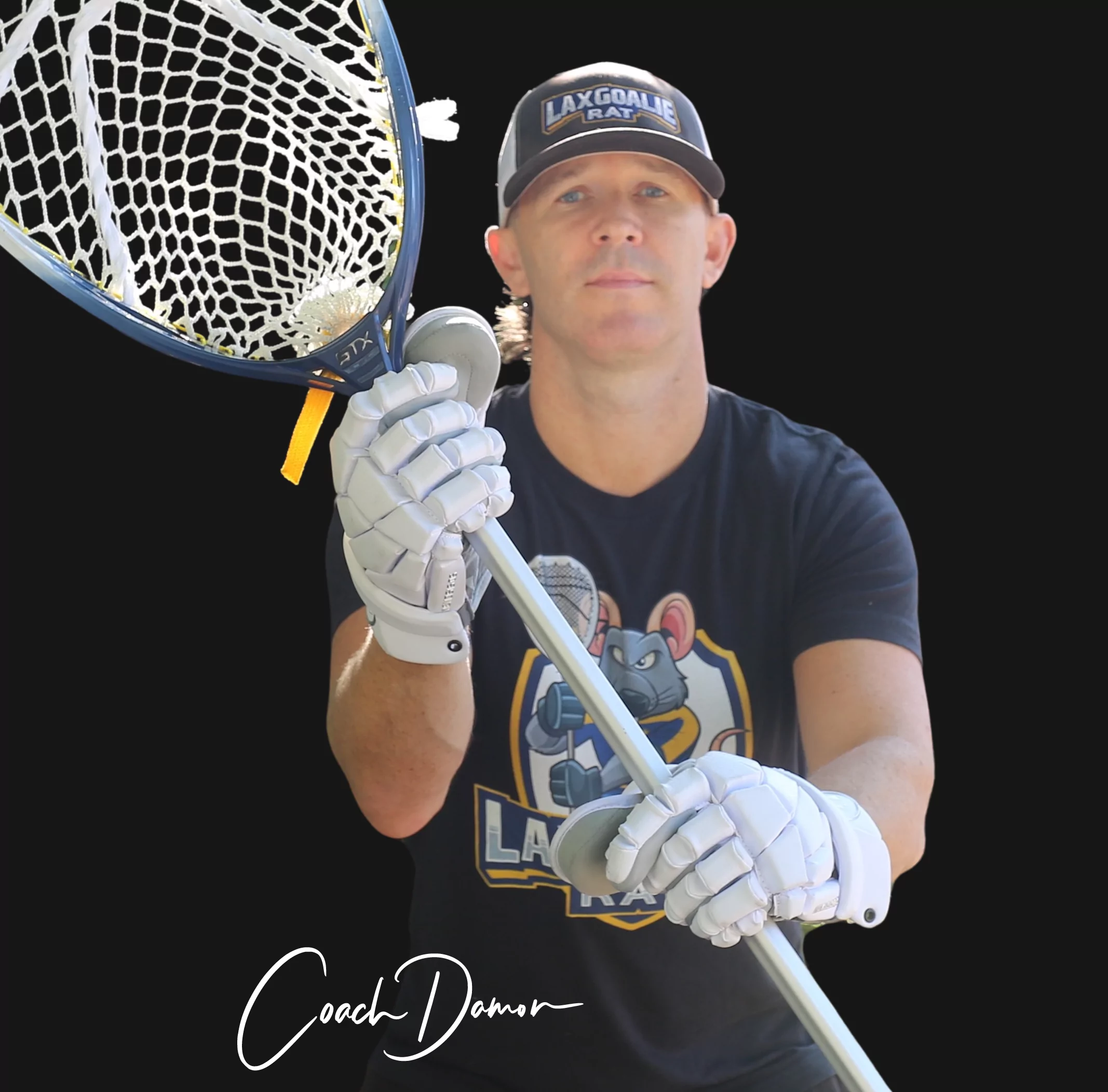







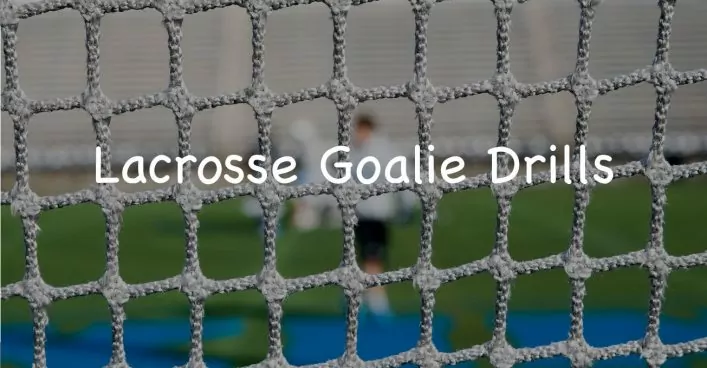 14 Amazing Lacrosse Goalie DrillsAug. 1, 2024
14 Amazing Lacrosse Goalie DrillsAug. 1, 2024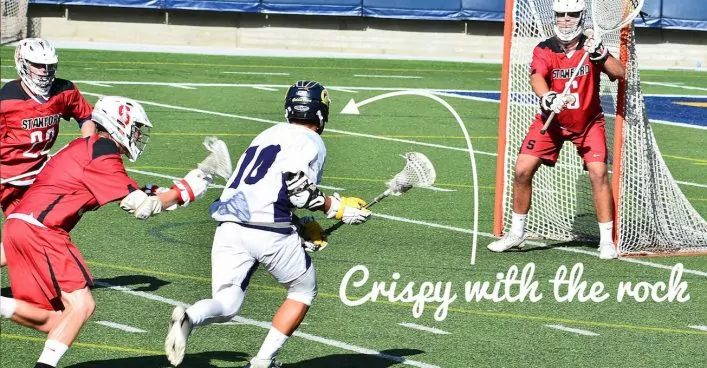 Quick Guide To Lacrosse Slang TermsApril 14, 2025
Quick Guide To Lacrosse Slang TermsApril 14, 2025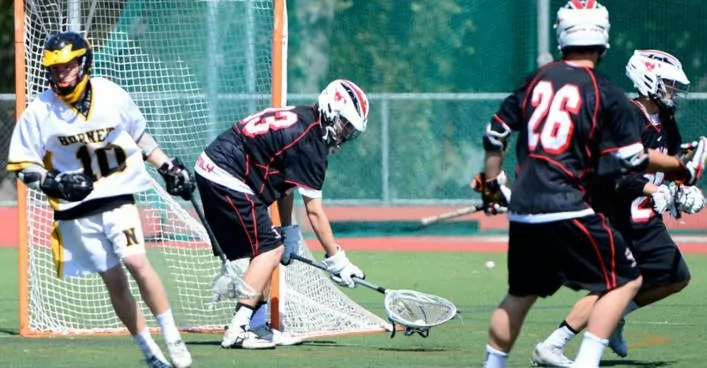 Lacrosse Goalies Rules To KnowJune 28, 2022
Lacrosse Goalies Rules To KnowJune 28, 2022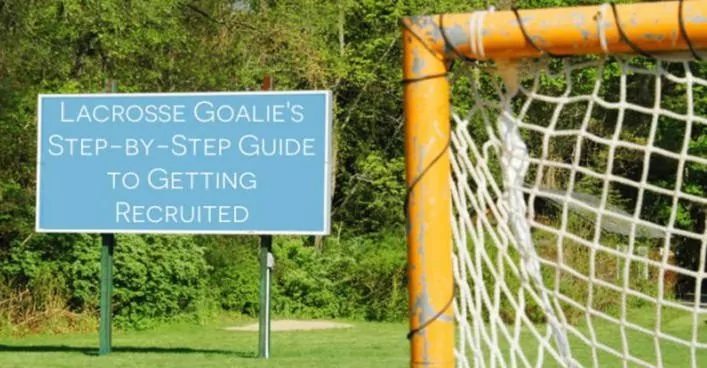 Lacrosse Goalie Step-by-Step Guide to Getting RecruitedFebruary 6, 2022
Lacrosse Goalie Step-by-Step Guide to Getting RecruitedFebruary 6, 2022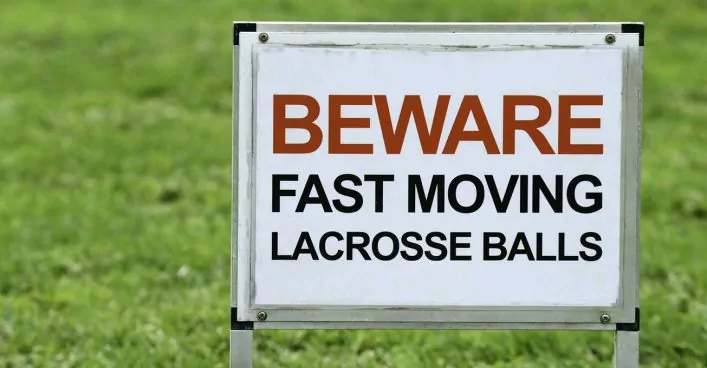 18 Lacrosse Goalie Drills to Improve Your GameApril 24, 2025
18 Lacrosse Goalie Drills to Improve Your GameApril 24, 2025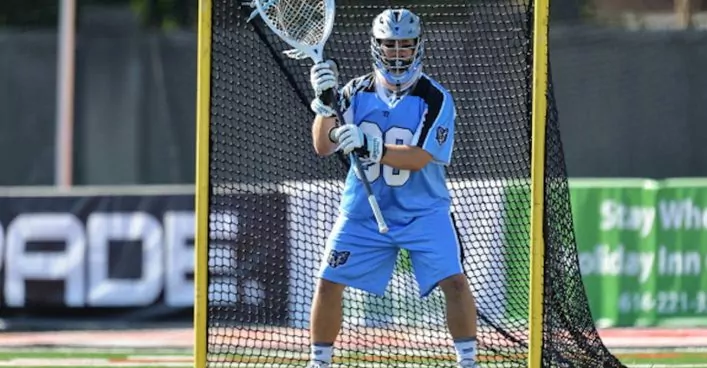 7 Elements of a Great Lacrosse Goalie StanceAug. 1, 2020
7 Elements of a Great Lacrosse Goalie StanceAug. 1, 2020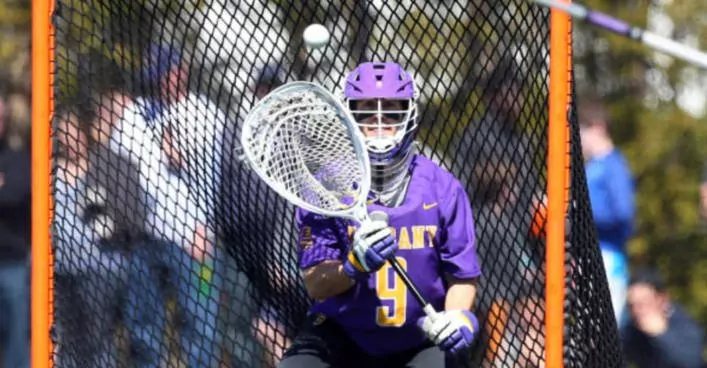 12 Lacrosse Goalie Tips To Take Your Game to the Next LevelSeptember 10, 2024
12 Lacrosse Goalie Tips To Take Your Game to the Next LevelSeptember 10, 2024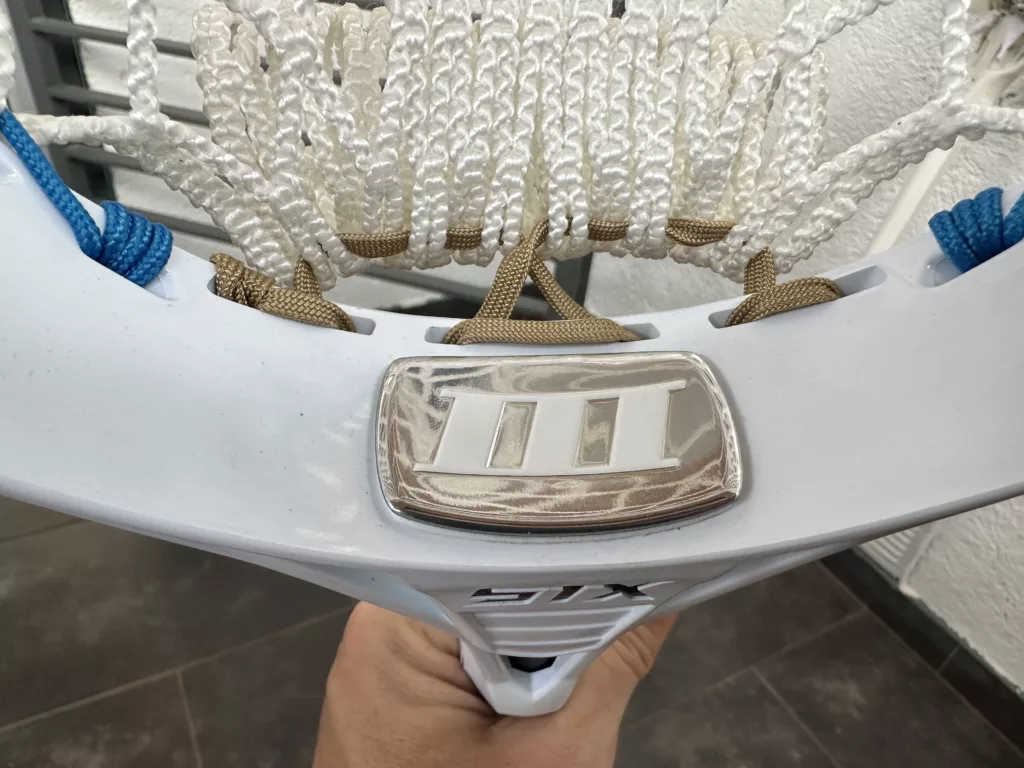 STX Eclipse 3 Goalie Head ReviewApril 24, 2025
STX Eclipse 3 Goalie Head ReviewApril 24, 2025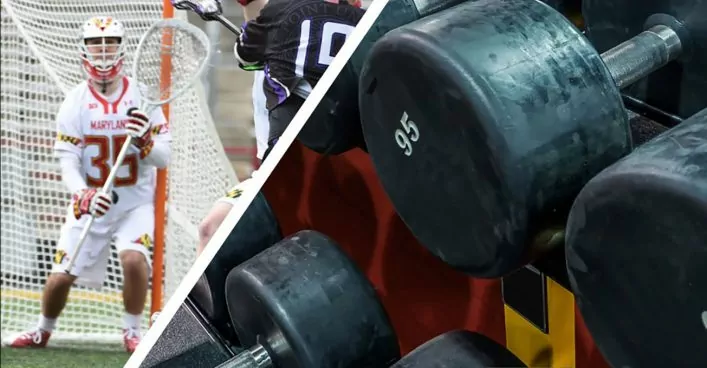 Lacrosse Goalie WorkoutAug. 12, 2019
Lacrosse Goalie WorkoutAug. 12, 2019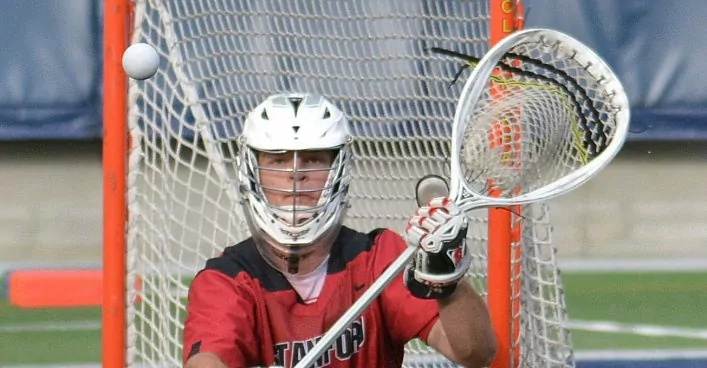 The Basics of Making a SaveJune 29, 2021
The Basics of Making a SaveJune 29, 2021

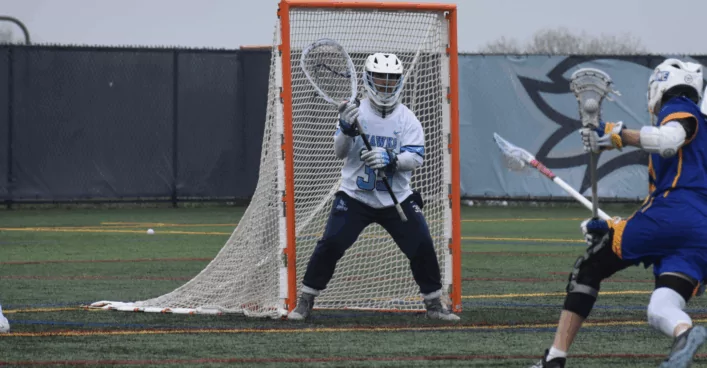
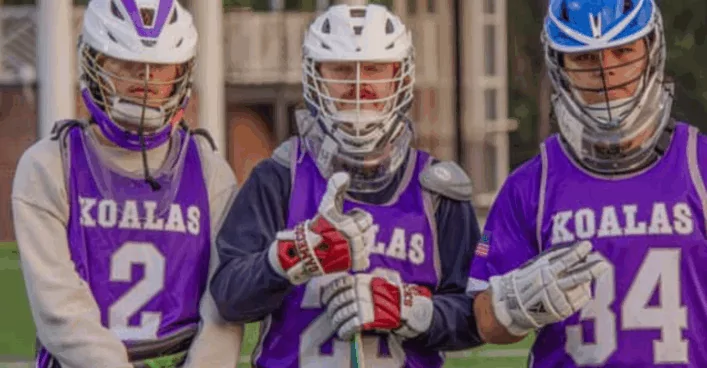
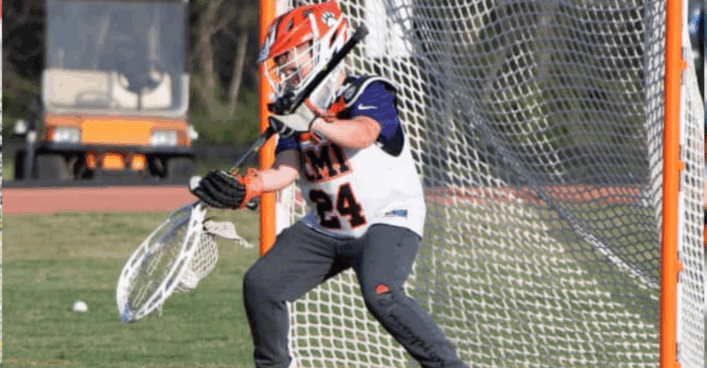
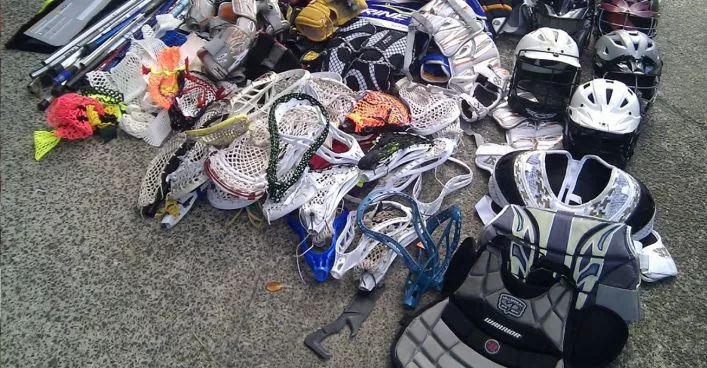

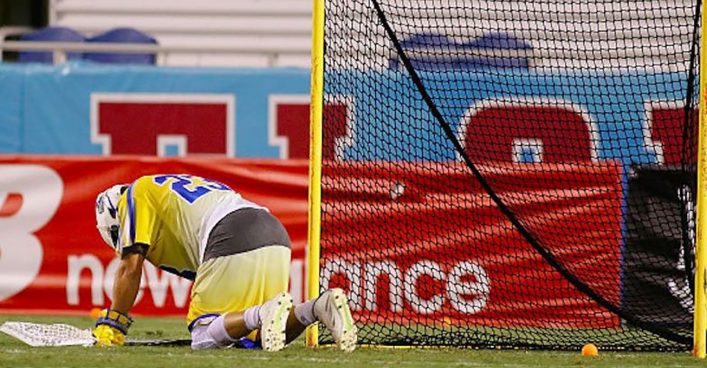
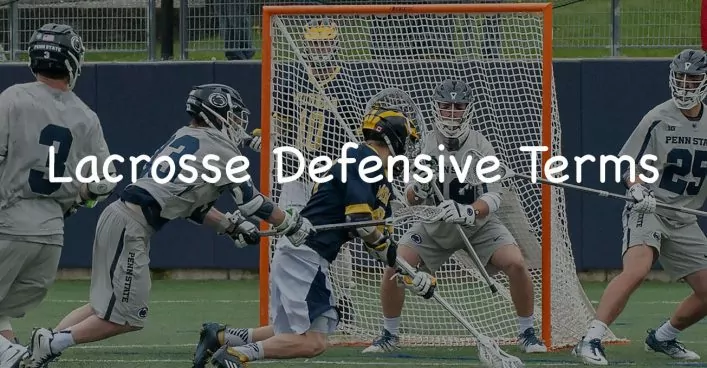
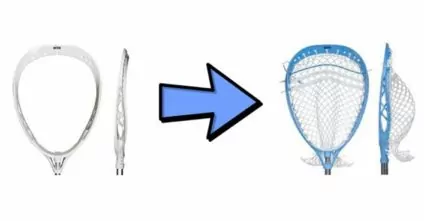
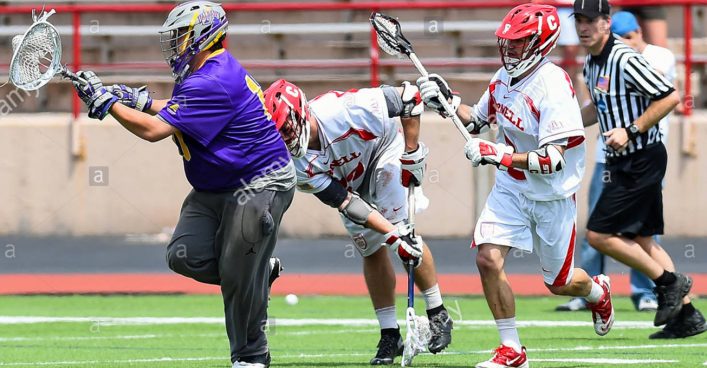






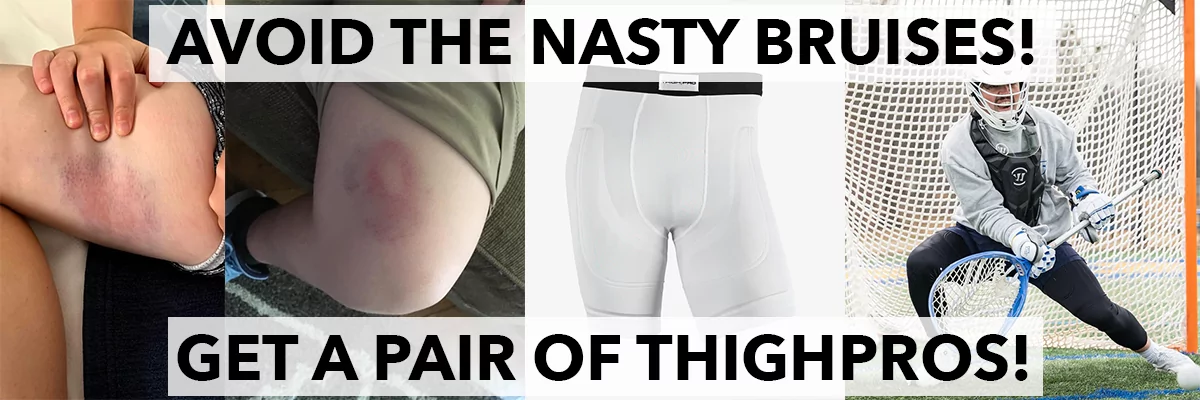

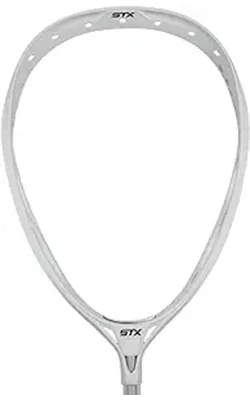

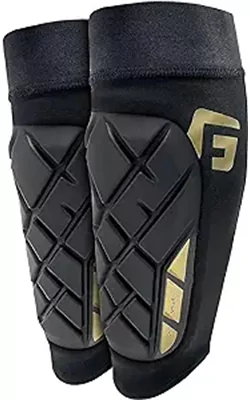
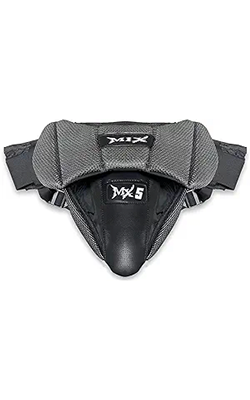

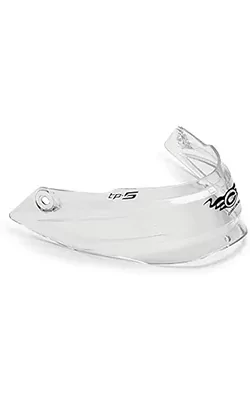
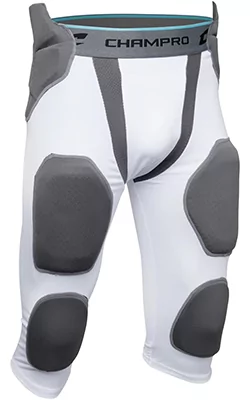

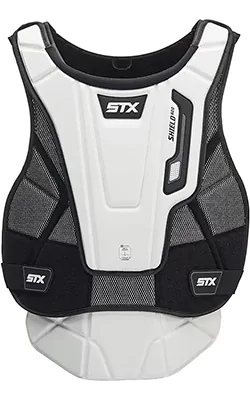

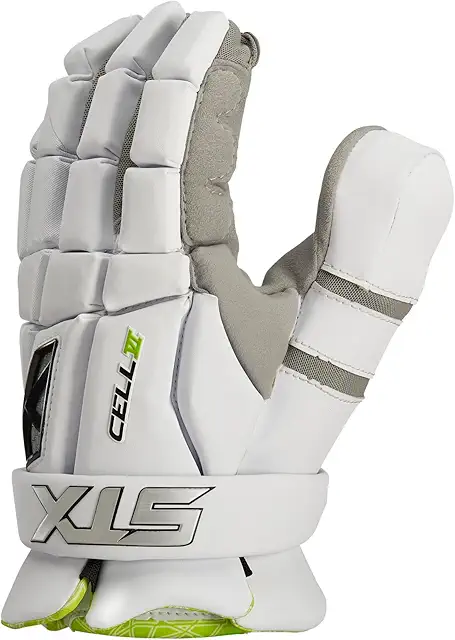



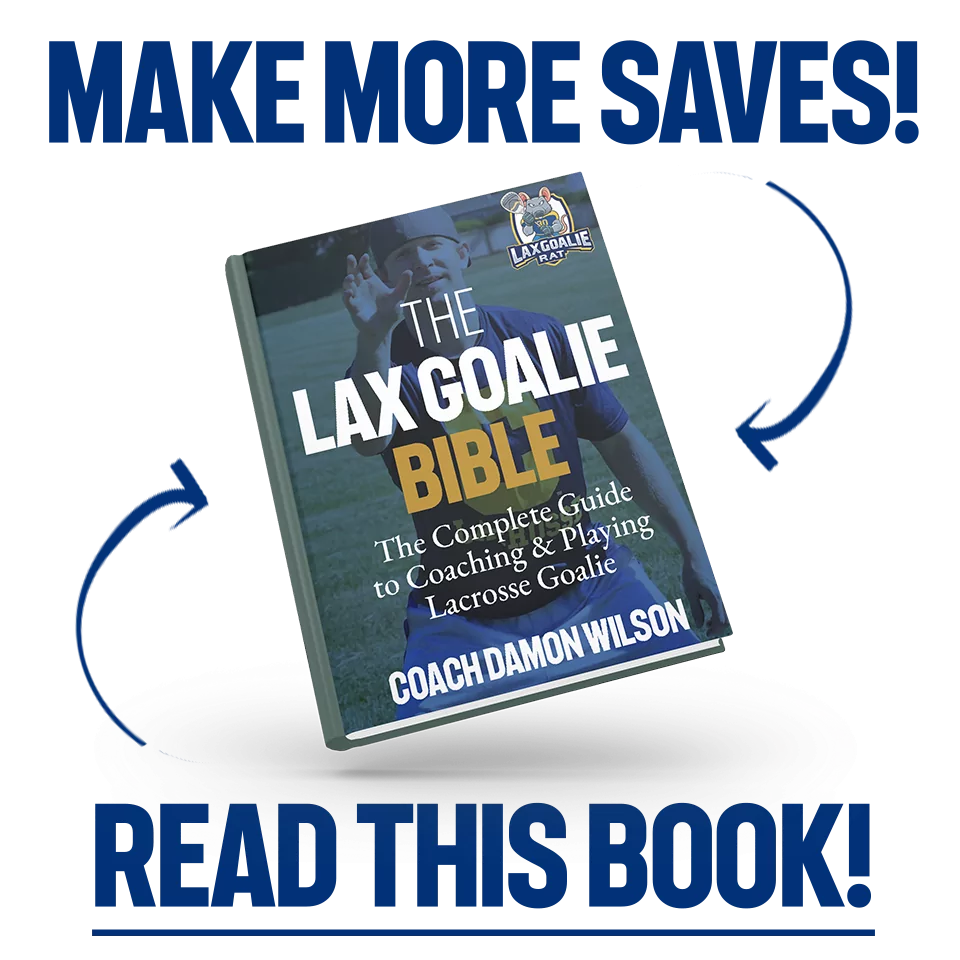
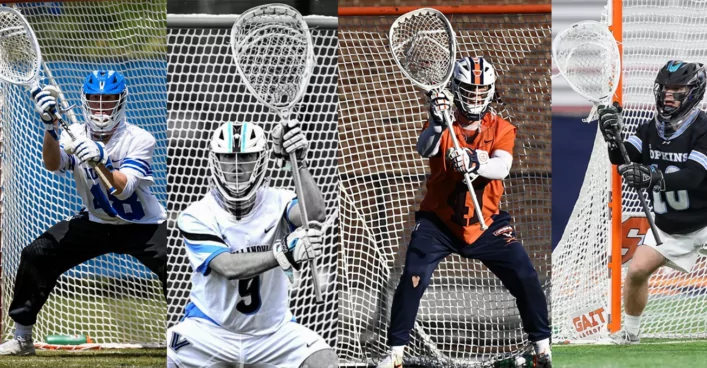
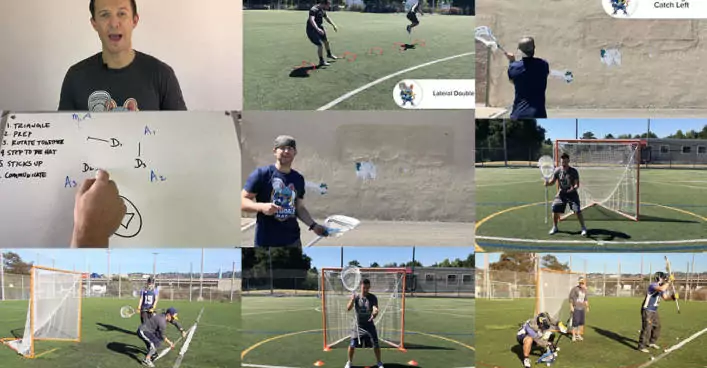
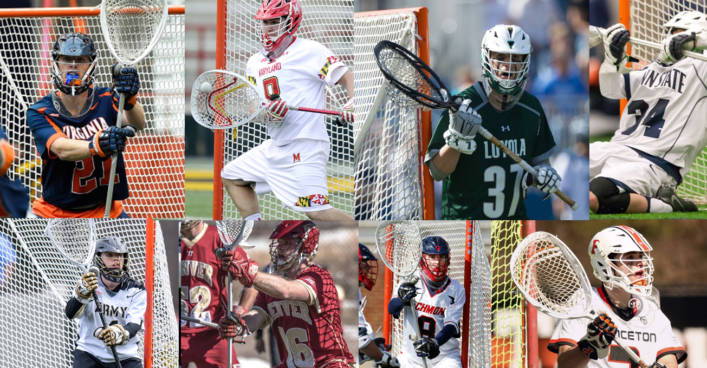
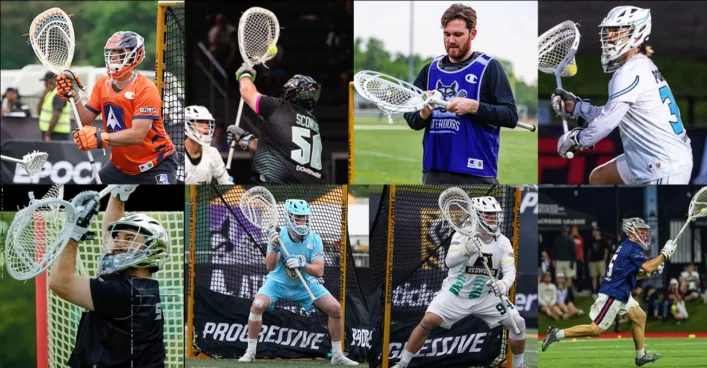
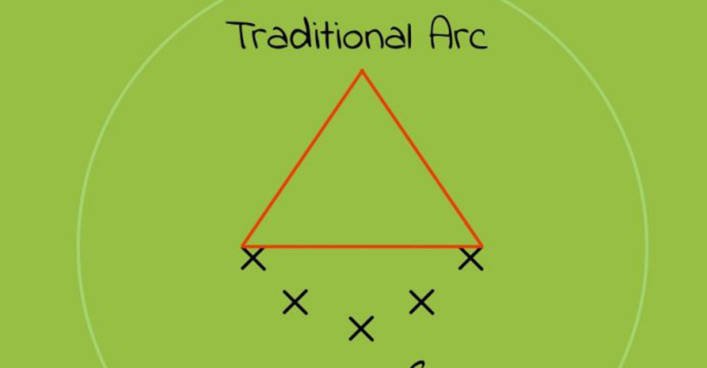










From dad/coach (now retired)
My son was the best goalie on my team for 3 years however, the needs of the team required his abilities on attack. We had no set-up guy w/o him in there. So his in-season playing time was limited. But he played goalie on a club team in the “off season”, more accurately called “the club season”, which is basically summer/fall/&winter. Here’s the dilemma:
He is now a HS freshman & at 5′ &100# he’s a runt. Due to fall soccer, he took off the 20# we had bulked on him previously. He will play varsity, without question. There’s a lot of 6′ 200# D in his conference . While he might be somewhat protected by that thin white circle, in his heart he’d rather play attack. He’s had lots of quality goalie coaching. That’s why he’s good. He’s had little quality attack coaching, but he assumes the leadership role in critical O situations, just like he does in the net.
What can we say to him to help him decide where to go from this point. He needs to decide shortly.
Last thing he said was how he’d be pissed if he fell short of scoring 100 HS career points because he played goalie as a freshman—that’s 15 year old logic for ya’….
Any thing you’d have would help
If in his heart he wants to play attack sounds like decision is made. I wouldn’t force anyone to play goalie who has their heart elsewhere. He’ll put on weight – I was only a runt in HS (wrestled 98lb weight class my freshman year) but eventually hit growth spurt and bulked a little. Small attackman can be dangerous if they’re quick, they can run circles around larger D-man. Hope that helps!
Hey Coach,
I am a Junior and the goalie for my high school team and this is going to be my second year playing goalie (and lacrosse for that matter). The one thing that I am worried about is that this year’s team is looking like Navy’s defense playing Johns Hopkins. Last year wasn’t much better as we lost a game 1-0 and went 0-11 overall (this was our first season though and only 4 guys had ever played lacrosse before). But, our captains usually screw around during practice and often play so they can try to get a highlight reel goal at the expense of a 5-3 fast break. Our defense is solid, but they’re lax IQ is relatively low. Basically, my two questions are: How can I make a difference and play a leadership role on a relatively inexperienced team? and What do I have to change about my game both physically and mentally knowing that the majority of games will played in our end of the field?
Thanks, H
Hi H – Those questions are probably worthy of a full post themselves. I’ll add that to the list. My quick answer: inexperienced or experienced team leadership is the same – build trust by being hardest working player, lead by example, extreme ownership – don’t blame others, stay positive, constantly encourage others and always give 100% effort and enthusiasm even if others are not. 2nd question – physically just be sure to be in shape to handle additional workload. Mentally – don’t get down when goals go in. Very tough I know but check out all mental category posts on this site.
What do you think of the fluid arc? Or rather when a goalie doesn’t play one arc but rather goes back and forth between them depending on the situation. Also is fluid arc a real term, it’s just how I always describe my arc.
Hi Freddy – If by fluid arc you mean switching between High / Normal / Flat arc depending on game situation, yes I’m all for that. If you fluid arc means having no real points defined points on the arc, I’m against it as I think goalies should be as stationary as possible not taking little steps to constantly move on the arc. Hope that helps.
Hey Coach,
I love playing goalie but I like more of an aggressive play style some might call it. Saying this, I mean I don’t like to just stay in one place. I don’t just step to the side and throw the ball to a defenseman, instead I like to run the ball to are and make a good pass instead of just getting rid of it. I have seen lots of more advanced goalies play similarly, and then stay out of the net a little bit once the ball is up field. I was wondering what you think of this play style and any tips you might have for it, and also what could you be doing as a goalie in other areas of the field.
Thanks for all the help,
CK
Hey CK – Thanks for the comment. I’m definitely in favor of goalies leaving the crease to help their team with the clear. No problems with that. It’s something I think every goalie should do. As long as you can recover to the crease in plenty of time on a fast break staying out while your offense has the ball is fine.
Hello,
I’ve always been a bigger kid, but I never really found that it got in the way. I clearly struggled in conditioning drills, but when it came time to play I was a 60% goalie and was named All-Region at 5’11” 240. I decided I wanted to lose the weight and played fall ball this year at 6’ 200. I actually felt like a better goalie. However, as spring approaches, a lot of people are telling me if I go down to 175-180 it’s going to hinder my performance. Do you think there’s any truth to that? I’m already committed and a senior so I want to try to play at a weight as light as possible to see where I perform best for college.
Hey KR! Same advice as I preach in this post. Lacrosse goalies need to be fit. I think all goalies should be trying to lose fat weight and gain muscle weight. Whether that puts you at 200 or 180 is less important to me. So fitness, fat loss/musccle gain are the important important things for me.